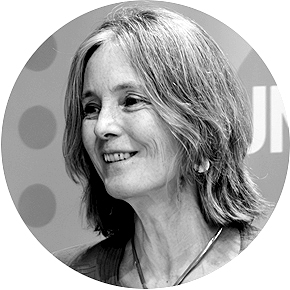Florence Bauer, Regional Director of the United Nations Population Fund (UNFPA) for Eastern Europe and Central Asia, made her first official visit to Armenia. There, she met with government officials, beneficiaries of UNFPA programmes and partner organizations.
A central focus of the visit was the presentation of Armenia's Demographic Strategy, a comprehensive plan developed with UNFPA's support to address critical population shifts and promote sustainable development.
In an exclusive interview with Mediamax, Florence Bauer described the visit as "extremely inspiring and positive." She shared her impressions of the meetings, as well as the joint efforts of UNFPA and Armenian Government in investing in human capital, highlighting that such investments are essential for the demographic resilience of the country.
- This is your first visit to Armenia as UNFPA’s Regional Director for Eastern Europe and Central Asia. What are your impressions of the country, and what have you observed during your visits and meetings?
- It was an extremely inspiring and positive visit. I have been here for three days and have had the opportunity to meet with different actors in society. I have met with government authorities, parliamentarians, representatives of civil society, international and local organizations, and beneficiaries.
I am positively impressed in different ways. First of all, from the government. I feel a very strong commitment from all the officials I met with who are working on topics related to our agenda - gender equality and prevention of gender-based violence. Beyond that, the work that is being done on demography.
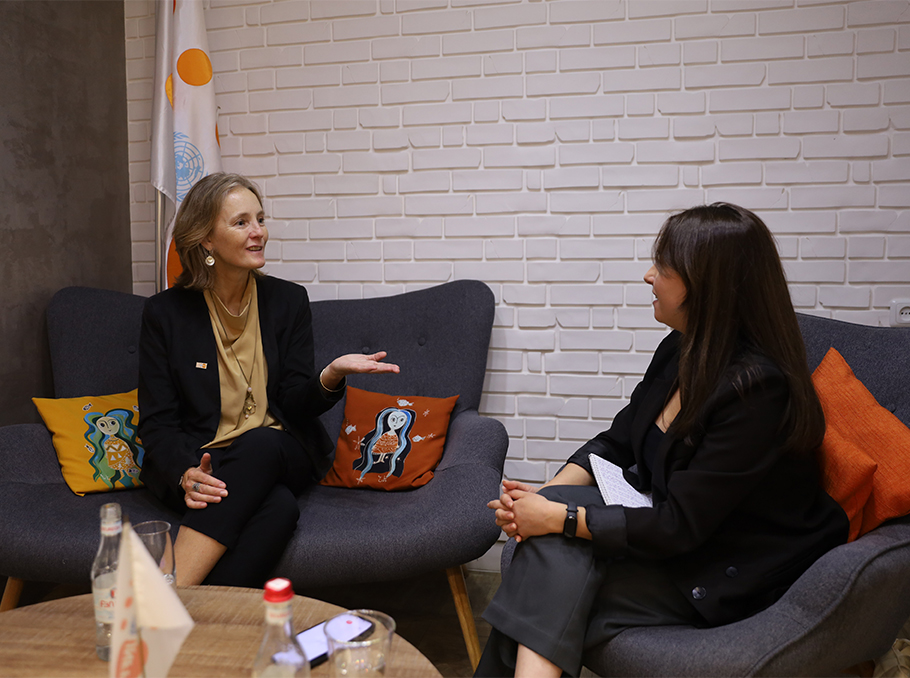
Photo: UNFPA Armenia
One of the main reasons I am here this week is the first presentation of the Demographic Strategy. This is an extremely powerful strategy. I can already feel that it will be an example in the country and beyond.
Armenia, like other countries in the region, is experiencing demographic shifts. The birth rate is low, there is a risk of young people's outmigration, and we have an aging population. All that combined creates a level of anxiety in many countries in the region. Governments are concerned about how they will deal with this demographic shift.
The fact that the government, with the support of UNFPA, was able to develop a demographic strategy that addresses those different demographic trends is something that I see as extremely positive. It is a unique strategy in the sense that it puts human capital at the center: investing in young people so that they can have what they want to have, create a family if they want, and have an economic activity. Also, investing in healthy aging, which is another pillar, and investing in women.
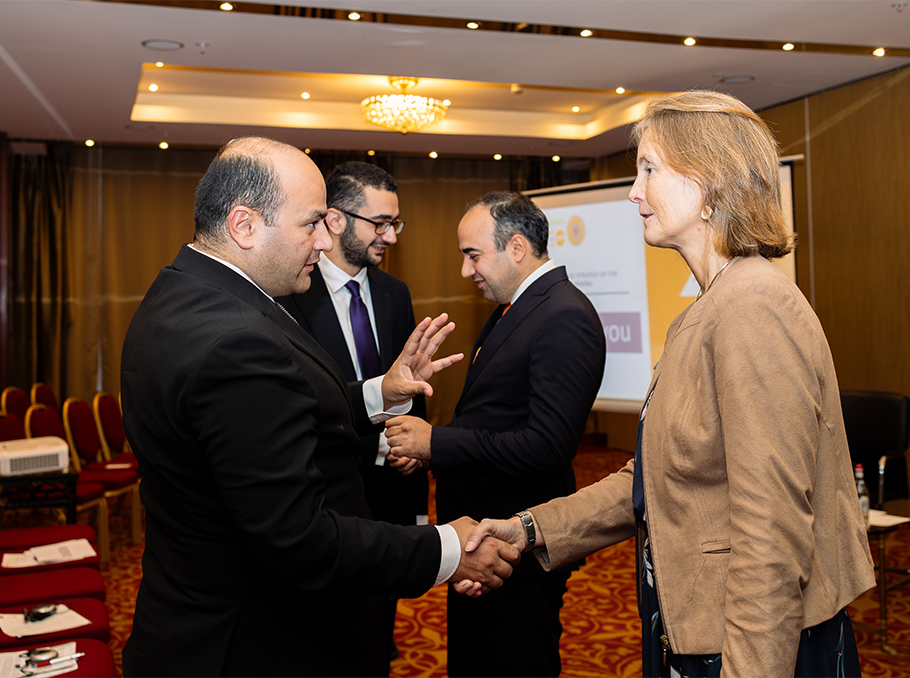
Photo: UNFPA Armenia
I went on a visit to Gyumri and had the opportunity to meet with an organization that works with young people and another one that works with people with disabilities. I met women with disabilities who were part of being trained and learning to sew, and there was also a cooking class. I also met with women engaged in addressing and preventing violence against women and working with survivors of gender-based violence. Those are some of the examples of investing in human capital, and I am very pleased because I can see them on the ground. I can see it at the policy level through this Demographic Strategy, which gives me hope and optimism.
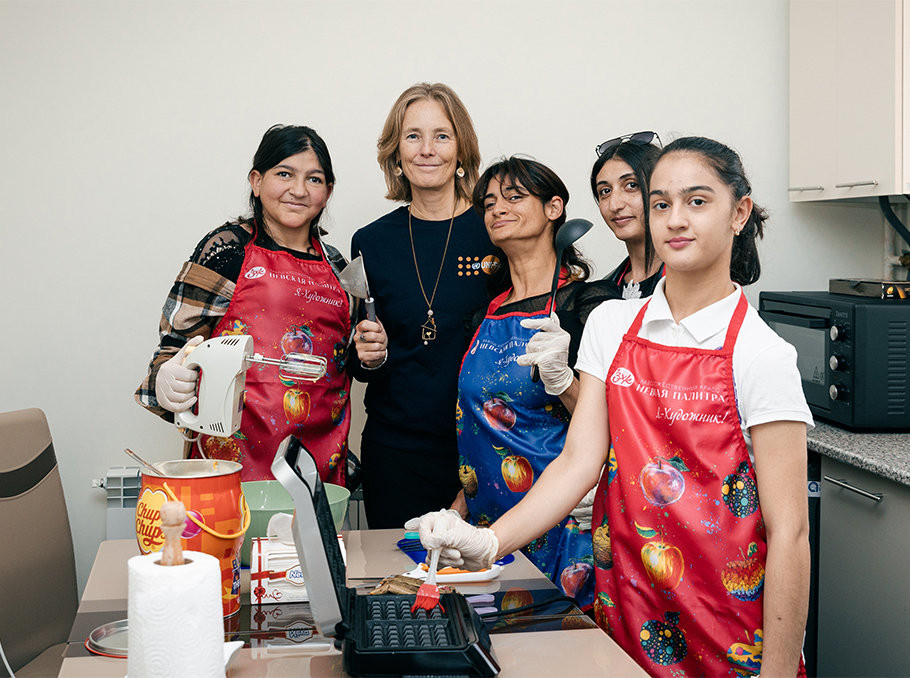
Photo: UNFPA Armenia
- Armenia faces significant demographic challenges. In your view, is Armenia currently in a demographic crisis?
- Armenia, like other countries in the region, particularly in Europe, is going through those different changes. It is the birth rate that is going down, and you have emigration and an aging population. This creates an anxiety that I do understand. But there is so much that Armenia can and is doing to put people at the center. In the end, there is no magical number for any country. Nobody would be able to say this country has to have this population. It is about the well-being of people and about creating conditions for people to contribute to their own lives, society, and the development of the country.

Photo: UNFPA Armenia
- Can you share insights into the Demographic Strategy that was developed with UNFPA’s support? What are its key priorities and unique aspects?
- This is a strategy that was developed over the last two years. What is unique about it is that it is looking really at evidence. We have been able to mobilize the best experts and to learn lessons also from other countries. So it is a very strong evidence-based strategy. That is one point.
The second point I would insist on is that it has several pillars of investing in human capital. So investing in young people, because we want them to have quality health, quality education, the possibility to have good jobs, investing in healthy aging, so that the older population contribute to the development of the society and community and are not seen, as it happens sometimes, as a burden for society.
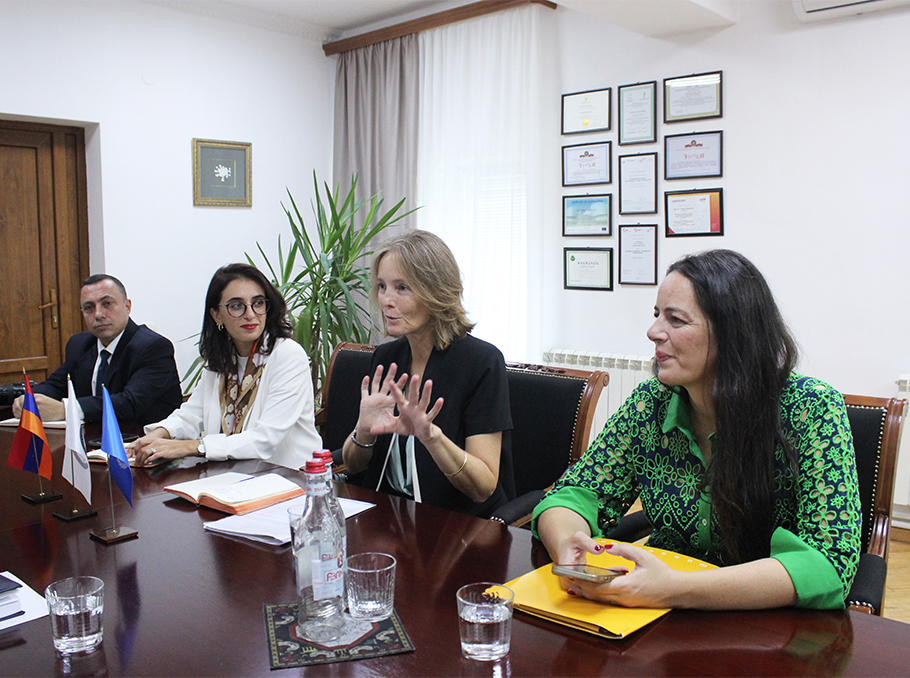
Photo: UNFPA Armenia
It entails investment in women, in particular, through family-friendly policies, because one of the challenges is when women are put in front of a dilemma - they either can have a family or a career. And women actually want to have both, often a family and a career.
The third point that I would highlight from the strategy is that it very much points to the importance of choices, creating conditions for people to make the choices that they want to make, to choose the number of children that they want to have, when they want to have them, with whom they wish to have them if they want to have a career, and so on. So that’s why it is a very strong strategy.
- Some might argue that simply raising fertility rates is the answer to demographic challenges. It is important, but is it enough? Do you see this as a sustainable solution for Armenia?
- I understand that countries are concerned when they see fertility rate. Now what is important is to ask how many children people want to have. And actually, in Armenia, when you ask that question, the average is three children per woman versus the 1.7 that is actually the current fertility rate.
The focus needs to be on supporting the families so that they can have the number of children they want to have. In order to do that, we need again to invest in different conditions so that it is easier to have children, such as access to childcare, flexible work arrangements, and the possibility of breastfeeding in different places.
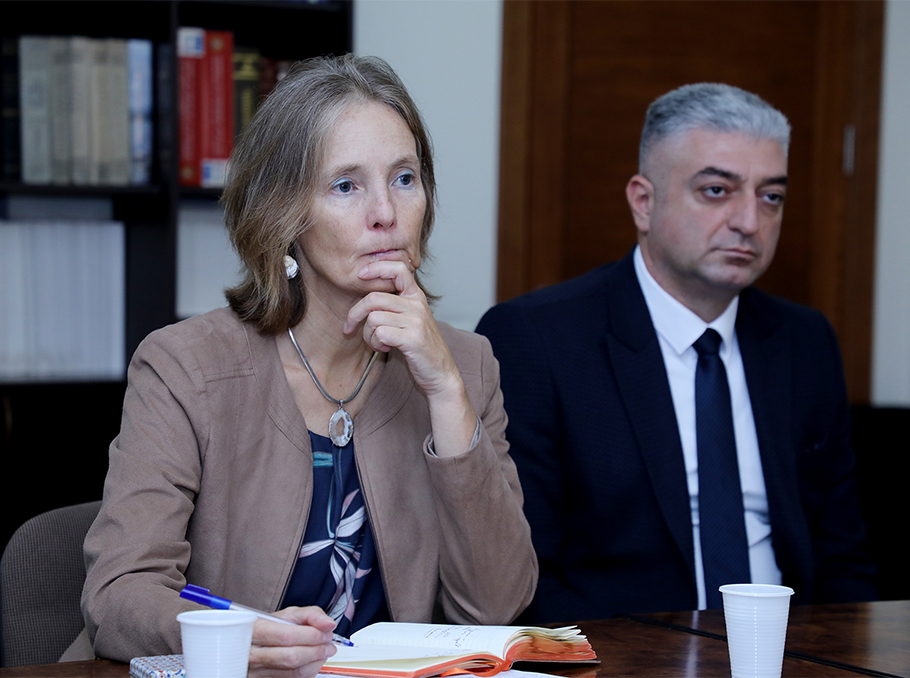
Photo: UNFPA Armenia
Again, it is not a magic number, it is not an ideal, but it is really about putting people and their well-being at the center and helping them to make the choices that they would like to make. In this country, people would like to have children; that’s what I am saying.
- You mentioned the importance of women’s empowerment. How does it tie into demographic resilience, and why is it essential for sustainable development?
- That’s another fundamental aspect. Because still, when a woman has a baby, a lot of the burden falls on her. That’s why it is important to work on women's empowerment and distribute family care equally. I am talking not only about taking care of the children. In a family where there is a need to take care of older people, for example, or if there are people with disabilities or young children, it falls a lot on the woman.
Of course, it becomes very heavy on women. That’s why having a fair distribution of responsibilities in a family is also extremely important. Many women want to have a career. And how many women say, ‘օh my God, how am I going to have a career and a family?’ We all know.
We need to create conditions for women not to face this terrible dilemma. We need to have conditions for the distribution of responsibilities at home, with policies in place like childcare and other policies that enable that fair distribution, so that women can have both if they want. Of course, again, it is a question of choices. Everybody should be able to make the choices they want.
When you invest in women's empowerment, of course, it is good for women, but it is also good for society. Women that are empowered are going to be more educated. They are going to be able to contribute to the economy and the development of the country. At the same time, they will be able to contribute to the education of their children, which is also important. It creates a positive vicious cycle.
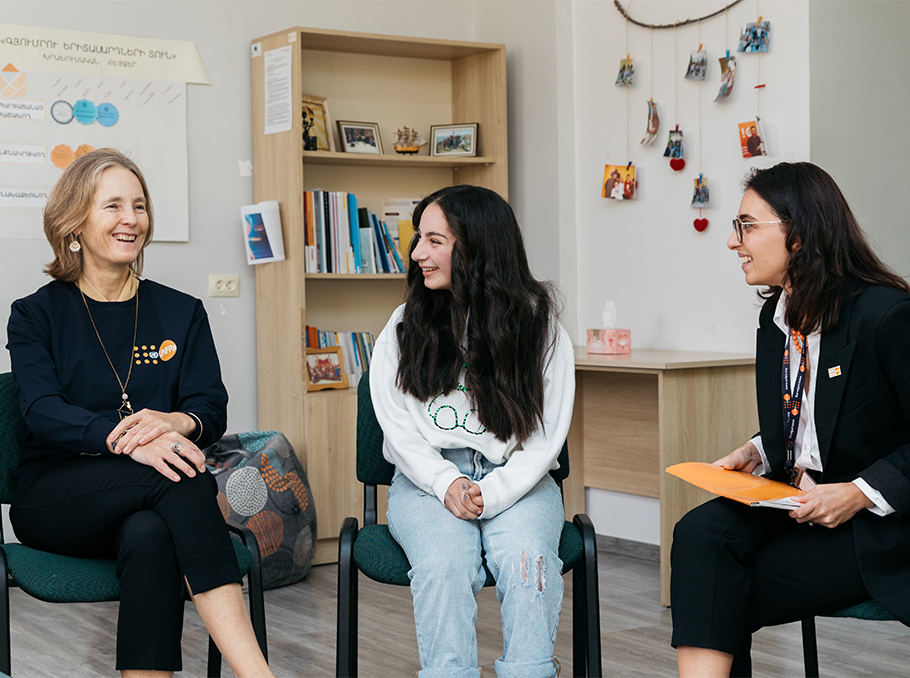
Photo: UNFPA Armenia
And from what I can see here, there are very positive conditions because many people are in favor of women's empowerment.
- Population aging is a growing concern for many countries, including Armenia. Do you see this as a threat, and how should the country address it?
- Having people live longer is actually a very good thing. That is a very positive thing that results in much progress in different ways. Now, it is important to ensure healthy aging so that people can get older in the best healthy conditions, contribute to themselves, be happy, and contribute to the community.
I have seen that sometimes you have intergenerational connections that are really interesting. Older people can actually bring a lot to young people and vice versa.
- You have mentioned human capital as a critical factor in addressing demographic changes. Can you elaborate on its role and how Armenia can best invest in it?
I was on a visit in Gyumri, and one of the professionals shared a story about a pregnant woman with hearing difficulties. During her first visit to the doctor, it was difficult for her to communicate, and the doctor understood the importance of being prepared. He learned the skills to communicate with a woman even if she could not hear so easily. That was a beautiful story, and they told us that now, many women with disabilities who have to deliver want that specific doctor.

Photo: UNFPA Armenia
I asked young people about their dreams, and you know, they had very interesting dreams, actually. One of them wanted to be a chef, the other one loved hiking, and the other girl wanted to have a center to help people find their purpose in life or career.
I think it is fundamental to invest in those parts of society that can contribute more. That includes women, young people, older people, and other parts of society, such as people with disabilities, refugees, and minorities - all the parts of society that exist in Armenia.
- From your perspective, how can countries like Armenia increase their resilience to demographic shifts? Are there specific lessons learned from the efforts of the UNFPA country team and your visits that can guide future actions?
- The first aspect for a country to be able to predict demography is to have data to have evidence. In Armenia, there is already a lot of evidence, and there is a need for a mechanism in place to be able to know how it is going to evolve. Then, policies, budgets, and strategies must be developed to respond to those changes. For example, if you have an older population, it is important to have different health services that are already looking at the particular needs of people when they get older, to have centers for healthy aging, and then the inclusiveness of society.
I see many of those elements in Armenia, and there is a commitment. I think the new Demographic Strategy offers a fantastic framework for continuing to work on that.
Yana Shakhramanyan









